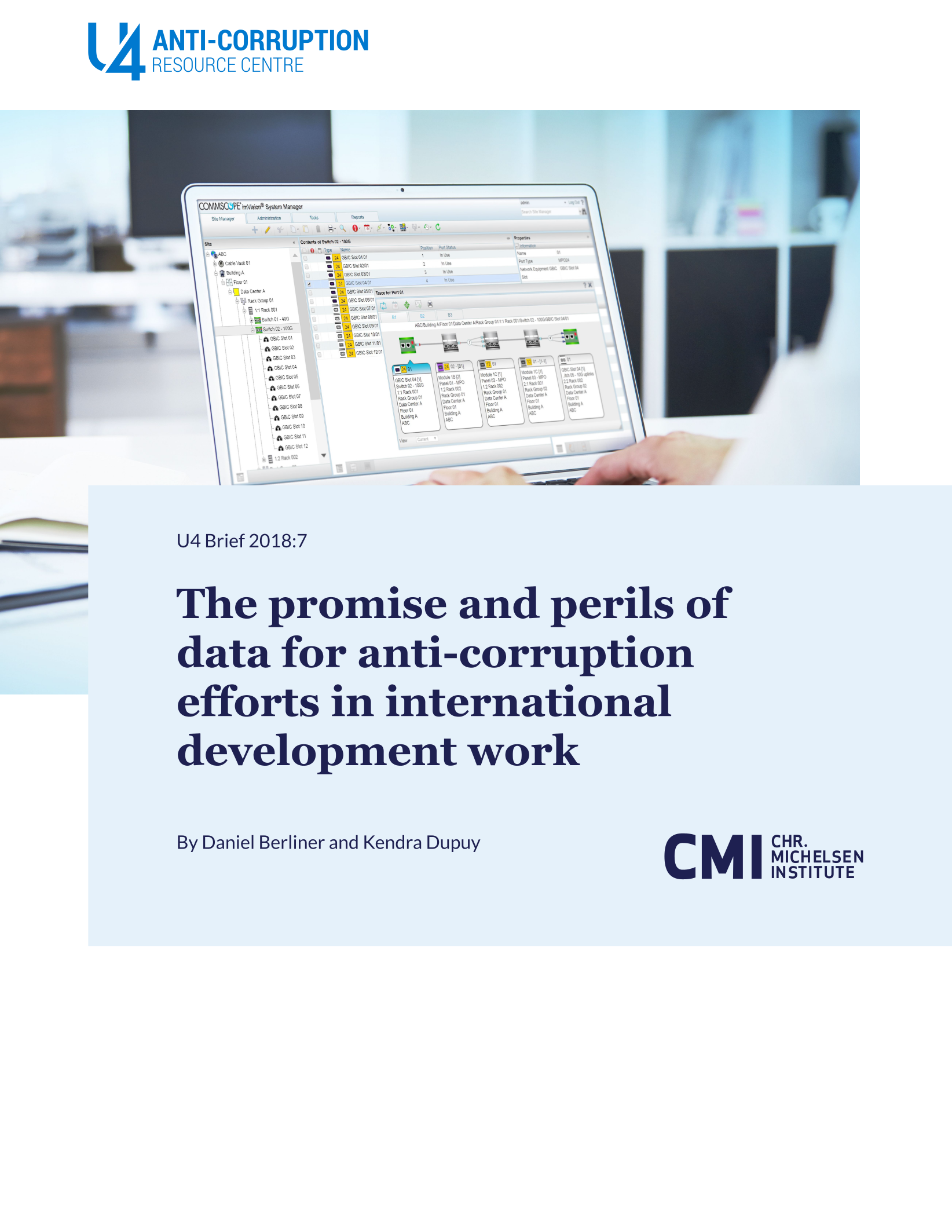Main points
- Analysing detailed administrative data can enable anti-corruption practitioners to identify individual instances of corruption.
- It can also help governments, practitioners, and donors measure the prevalence of corruption and compare outcomes over time and across jurisdictions.
- Finally, it can also allow donors and practitioners to evaluate the impact of particular interventions on corruption more accurately.
- Key challenges to using data for these purposes include the credibility, clarity, and complexity of the data, but also the need to interpret the data to derive specific conclusions from it and differences in cultural and legal contexts that frustrate easy comparisons across jurisdictions.
